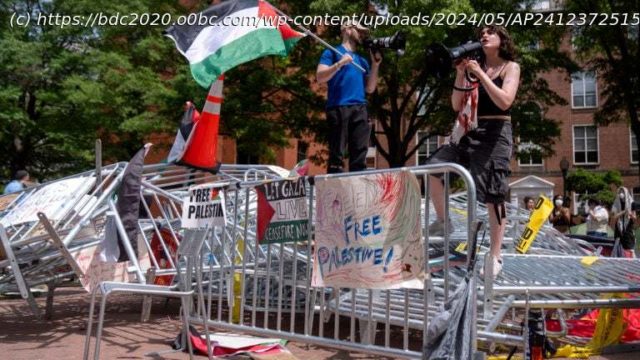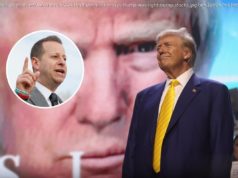Here’s what to know about the label and campus protests.
Historically, when students at American universities and colleges protest — from the Civil Rights Movement to Black Lives Matter — there’s a common refrain that “outside agitators” are to blame. College administrators and elected officials have often pointed to community members joining protests to dismiss the demands of student protesters.
Experts say it’s a convenient way for officials to delegitimize the motivations of some political movements and justify calling in law enforcement to stop direct actions that are largely nonviolent and engaging in constitutionally protected speech.
“This tactic shifts focus away from genuine grievances and portray radical movements as orchestrated by opportunistic outsiders,” said Shanelle Matthews, a professor of anthropology and interdisciplinary studies at the City University of New York and a former communications director for the Movement for Black Lives.
Over the last few weeks, students on campuses across the country have built encampments, occupied buildings and led protests to call on colleges and universities to divest their endowments from companies profiting from the Israel-Hamas war. Several college and city leaders have pointed to the threat of outsiders when describing the protests — and some have responded by cancelling or shifting plans for commencement ceremonies.
Here’s what to know about the phrase “outside agitators” used during historic student movements.
THE CIVIL RIGHTS MOVEMENT (1960s-1970s)
Protest movements are typically comprised of local community members and organizers from other parts of the state or country who work together toward a common goal. In the 1960s, state and local officials often focused on this hallmark of community organizing and suggested that civil rights protests were organized by people outside of a given community.
In 1960, a group of Black college students took out a full page ad in Atlanta newspapers called “An Appeal for Human Rights” that expressed solidarity with students everywhere protesting for civil rights. Segregationist politician and then-Georgia Gov. Ernest Vandiver suggested it was created by foreigners and called it a calculated attempt “to breed dissatisfaction, discontent, discord and evil.”
“It did not sound like it was prepared in any Georgia school or college; nor in fact did it read like it was written even in this country,” he told the press.
The idea that outside agitators were involved in civil rights protests became so common that Martin Luther King Jr.






